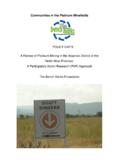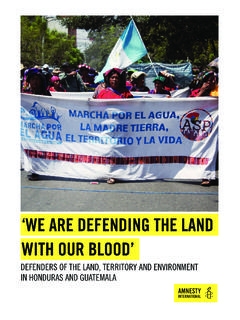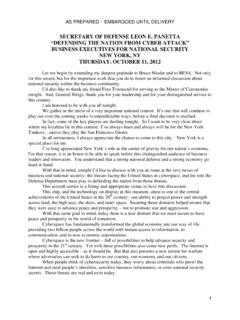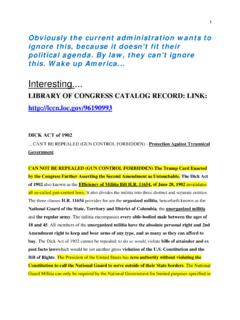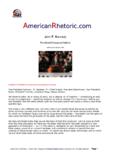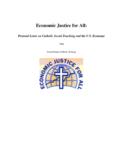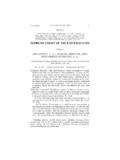Transcription of RUSTENBURG COMMUNITY REPORT 2011 - Bench Marks
1 RUSTENBURG COMMUNITY REPORT2011 defending OUR land , ENVIRONMENT, AND HUMAN RIGHTSThe Bench Marks Foundation is proud to be associated with the produc-tion of this first COMMUNITY REPORT on the impact of Platinum mining in RUSTENBURG . The Bench Marks Foundation has had a long relationship with the com-munities of RUSTENBURG . In 2007 we produced the first REPORT (Policy Gap 1) where we reviewed the Corporate Social Responsibility of mining corpora-tions operating in RUSTENBURG . In 2011 we produced our second study to review the changes since our first 2007 REPORT . In implementing our 2011 study we drew local COMMUNITY groups as active participants in the research. This COMMUNITY REPORT is a product of this believe that a system of regulation (government laws, regulations and monitoring institutions) is important to make private corporations account-able and responsible.
2 However this system of regulation will not lead to real changes without the organised, informed an active monitoring by the COMMUNITY at large and specifically the local COMMUNITY directly RUSTENBURG COMMUNITY groups have identified a programme for action in 2012. The Bench Marks Foundation is committed to supporting the group in implementing this Right Rev Dr. Jo Seoka (Chairman) Mr. John Capel (Executive Director) Bench Marks Foundation Contact DetailsPhone: +27 11 832-1743/2 Email: wish to thank the following organisations for supporting the Bench Marks Foundation Monitor-ing Project:Bread for All, Action Aid South Africa, the Foundation for Human Rights, Norwegian Church Aid, NiZA (Nederlands Instituut Zuidelijk Afrika), IANRA (International Alliance on Natural Resources in Africa) and Development and Peace (Canada) who supported the project directly and our core funders.
3 Christian Aid, EED (Evangelischer Entwicklungsdienst) and ICCO (Interkerkelijke Organisatie voor Ontwikkelingssamenwerking) who made this work 4 CHANENG-MAFENYA COMMUNITY REPORT 10 LUKA COMMUNITY REPORT 18 IKEMELENG COMMUNITY REPORT 28 MARIKANA COMMUNITY REPORT 38 THLABANE COMMUNITY REPORT 5023 CONTENTSOur purpose in writing this REPORT is to highlight the suffering and hardships of RUSTENBURG communities resulting from the practices of mining activists from different villages met regularly from February to September 2011 in order to discuss ways we can gather information and to review the information collected towards writing this the first meeting key individual COMMUNITY challenges were identified and more in-formation was collected to substantiate the
4 Challenges after this session. Photos of the identified issues were taken and presented in the following joint draft REPORT was produced after another presentation was made by individual communi-ties for final review. More photos and interviews were conducted with relevant stakehold-ers, where possible with mine working together to develop this REPORT we have greatly not only learnt more about our communities and the problems they face, we have also developed our skills and our capacity as organisations. We faced many difficulties which reduced the scope of this REPORT . We worked on a small budget which restricted our ability to increase the number of COMMUNITY groups and our travel across communities to visit sites.
5 We had a limited number of cameras and most communities did not have access to computers to prepare our reports. It was difficult for us to access statistics and information from corporations and govern-ment offices as these involved lengthy applications and officials were not very coopera-tive. We are very grateful to the Bench Marks Foundation and the resource people who gave us support and guidance in preparing the reports. The following organizations from five different RUSTENBURG communities were involved in writing this REPORT : Chaneng Youth Organisation and Mafenya Youth Organisation team totaled a number of 15 activists. Marikana Development Organisation and Enviro Kids involved 10 environmental activ-ists.
6 Ikemeleng Environment Organisation: Participated in the process having 5 activists actively involved. Luka Environmental Forum had 5 activists from their organisation. Tlhabane Youth Organisation involved 4 comrades in the COMMUNITY reports from the different communities show that CSR is a make a lot of promises when they enter and when they make social labour plans. In their reports they talk about how much they are doing for the COMMUNITY as part of their CSR. As a COMMUNITY we experience arrogant mine officials, who use their resources to avoid COMMUNITY organisations and only deal with individuals whom they can control. When they set up COMMUNITY projects they do not consult with the COMMUNITY but only selected individual.
7 We see many projects which have failed or which simply serves a few companies initiate most of these projects which are mainly intended to impress their shareholders and go into their glossy an-nual reports to satisfy their public image. Rarely do the projects develop the lives of the communities as they are determined by the corporate world and not by the communitiesMINE PROMISES AND CORPORATE SOCIAL RESPONSIBILITY IS A IS FAILING THE PEOPLEWe are disappointed that the Department of Mineral Resources, which represents our democratic government has failed to protect the COMMUNITY . They simply do not enforce the MPRDA. This govern-ment body has grown to become a partner with the mines and has not played their role as custodian of COMMUNITY lives.
8 RUSTENBURG communities are finding it difficult to understand why they should continue to vote for the government which does not have their interest at heart, especially considering the roles which they (Department of Mineral Resources, Environmental Affairs & Wa-ter Affairs) are abandoning in favour of the mining industry. In all the local COMMUNITY reports the following prob-lems are common:UNEMPLOYMENT All communities suffer very high rates of unemploy-ment and poverty. This is in spite of being located in the one of the richest land in the country and the OF TRADITIONAL ECONOMIC AC-TIVITIESF amilies in RUSTENBURG subsidised their low incomes over the years through small vegetable gardens and keeping poultry and cattle.
9 Much of this has now been destroyed by the expansion of mining. Worse still when mines take away farming land they give them no compensation or alternate land . UNEVEN DISTRIBUTION OF wEALTHA tiny group in the COMMUNITY get business opportu-nities and are growing wealthy while the majority of people grow poorer. wATER, NOISE AND AIR POLLUTIONAll communities in RUSTENBURG suffer water problems due to contamination of the rivers and boreholes. Mine blasting, giant air-conditioners for mine shafts and the network of railways that run across Rusten-burg expose people to noise at all times of the day and night. Dust blows from the increasing number of tailings dams causing respiratory problem in the OF MINE wORkERS IN VILLAGES The mines do not provide housing for mine workers, These workers then find cheap accommodation in the villages thus dramatically increasing the population.
10 This has led to an over-crowding of the transport and health services, an increase in the number of taverns and new social problems which the villages never had in the past such as crime and HOUSES All villages around the mines complain of cracked houses which are caused by blasting and under-ground families have been forced to move out of the homes they traditionally occupied and where they had settled down to make way for mining expansion. The compensation given to these families is very low and does not cover the full scale of the losses they Already we see areas of RUSTENBURG , where mining has ended, turn into little INCREASE IN MINING COMMUNITIESWe believe very strongly from our personal family experiences that mining has brought an increase in diseases.


